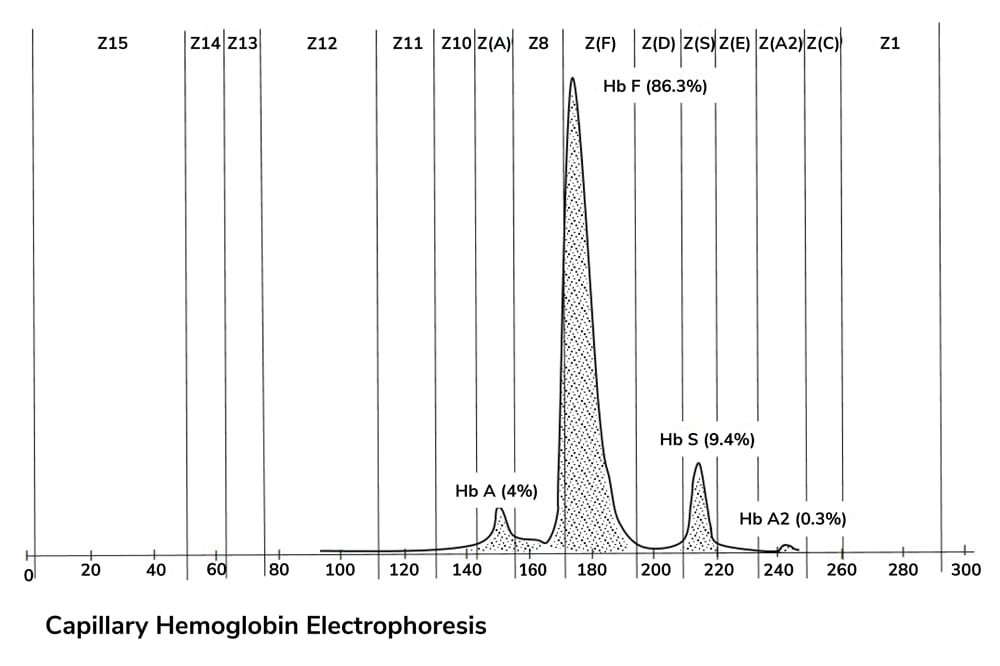Glioma-omics
A spatial proteomics study published in Science Advances has identified protein changes unique to glioma tumors (PMID: 38363834). The researchers analyzed blood samples from in and around glioma tumors using liquid chromatography–mass spectrometry methods to map proteomic patterns. The analysis revealed protein shifts unique to the glioma tumor microenvironment. “Our data offers a landscape view of the molecular changes induced by glioma, which may provide useful diagnostic and therapeutic clues in the ongoing battle against this deadly disease,” said corresponding author, Suming Chen. The strategy used could be applied to mechanistic studies of other tumors.
The fab four
Researchers in China have identified key plasma biomarkers for predicting dementia in healthy patients years before onset (PMID: 38347190). The long-term prospective study interrogated proteomic test results of more that 50,000 patients without a dementia diagnosis, who were recruited to the UK Biobank study between 2006 and 2010.
Four of the 1,463 plasma proteins studied showed strong association with dementia: GFAP, NEFL, GDF15, and LTBP2. In the paper, which was published in Nature Aging, the authors wrote, “Our findings strongly highlight GFAP as an optimal biomarker for dementia prediction, even more than 10 years before the diagnosis, with implications for screening people at high risk for dementia and for early intervention.”
Beyond colonoscopy: Part 1
Results of a study into a blood test for colorectal cancer have been published in the New England Journal of Medicine (PMID: 38477985).The ECLIPSE study detected cell-free DNA in patients with colonoscopy-confirmed colorectal cancer. The test identified more that 80 percent of the confirmed cases, and showed particular sensitivity for early-stage colorectal cancers. Corresponding author William Grady, said, “Colorectal cancer is now the third most common cancer for people under the age of 50. Having a blood-based test for people to take during routine doctor’s visits could be an opportunity to help more people be screened.”
Beyond colonoscopy: Part 2
Another study, also published in the New England Journal of Medicine, has identified colorectal cancer via next-generation sequencing of stool samples (PMID: 38477986). The test, which uses multitarget profiling, identified 93 percent of colorectal cancers confirmed by colonoscopy. Sensitivity was shown to be superior to a commercially available fecal immunochemical test. “Improving specificity of non-invasive stool-based screening tests while maintaining high sensitivity is a critical step in advancing the detection and prevention of colorectal cancer and minimizing the potential for unnecessary follow-up colonoscopies,” said corresponding author Thomas F. Imperiale.
In Other News
Adverse effects
Epigenetic study, using mSTARR-seq, identifies link between DNA methylation patterns and human response to environmental factors (PMID: 38407202).
Go large
Health economic study finds that whole-genome sequencing could be more cost-effective for diagnosis of pediatric genetic disorders than whole-exome sequencing (PMID: 38277144).
The blood biomarker challenge
As researchers uncover optimal biomarker for dementia prediction, two studies are set to take place in the UK with aims of developing blood tests for diagnosing Alzheimer’s and other forms of dementia on the NHS within five years (https://bit.ly/4cLJNIy).
So and pso
Mice heterozygous for an Ikbkb gain-of-function mutation mimic psoriasis pathology; doubling the gene dose escalates to psoriatic arthritis – results that warrant further investigations in humans, says the Australian-based team (https://go.nature.com/3TxGLif).




